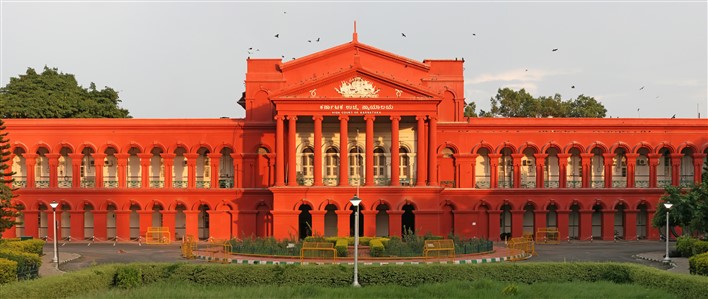Currently, the country is experiencing the world’s biggest lockdown that has let to the shutting of the majority of factories and businesses, suspending of flights and restricting of overall movement between and within the states. It has been estimated that the Indian Economy has already suffered a setback of more than Rupees 10 Lakh Crore and is expected to increase multifold and could lead to the next recession. Many Economist is predicting that a lot of business especially the ones those who were facing financial crunches even before the lockdown would not be able to sustain and are likely to go bankrupt and insolvent after it. Such a situation will have an adverse effect on the rest of the businesses as well as a direct implication of the same would be that many businesses would no longer be able to honour their Financial Commitments.
In Our Country Cheques are a crucial mode of payment especially when it comes to a commercial transaction or for giving surety of some future payment. Cheques have been ingressed deeply into the business ecosystem as people have a firm belief in the protection that the law gives in cases when these cheques have been dishonoured.
Dishonoured of Cheque is covered under section 138 of the Negotiable instruments Act which states It states that –
138 Dishonour of cheque for insufficiency, etc., of funds in the account. —Where any cheque drawn by a person on an account maintained by him with a banker for payment of any amount of money to another person from out of that account for the discharge, in whole or in part, of any debt or other liability, is returned by the bank unpaid, either because of the amount of money standing to the credit of that account is insufficient to honour the cheque or that it exceeds the amount arranged to be paid from that account by an agreement made with that bank, such person shall be deemed to have committed an offence and shall, without prejudice to any other provisions of this Act, be punished with imprisonment for a term which may be extended to two years, or with fine which may extend to twice the amount of the cheque, or with both: Provided that nothing contained in this section shall apply unless—
Explanation.— For the purposes of this section, “debt or other liability” means a legally enforceable debt or other liability.]
What is important here is to note that this section is bound by the limitation period, which is the time period within which the complainant has to act in order to ascertain his right.
So whenever there is the dishonor of the cheque a person has to send a legal notice within 30 days from the date on which he had received information about the dishonour. In that Notice 15 days, time is given to discharge the liability once that is expired and no payment is made then within 30 days from that date the case has to be filed in the court.
The order
However, during the lockdown, it became almost impossible for the claimants to file their cases or even to serve the legal notice so considering these unprecedented circumstances the Supreme Court of India on 6th May 2020 has extended the limitation period for statutory provisions under Section 138 of the Negotiable Instruments Act & the Arbitration & Conciliation Act with effect from March 15 until further orders.
This would mean that if the cheque given to you was dishonoured during the lockdown or even before it, whereby your limitation of 30 days was there till 15th March then in such cases your limitation period has been extended and you can act upon it once the lockdown is lifted.
For the time being, you can intimate the opposite party through E-mail or Whatsapp regarding the same.
It is important to note that the validity of a cheque within which it needs to be deposited would still remain 3 months and there is no extension of that period as the Banks were functional even during the lockdown.
Previously the finance minister Nirmala Sitharaman had announced to increase the threshold limit to 1 crore for filing for an insolvency case against the defaulter. Thereby restricting the options available to recover the amount so it becomes very important to cautiously exercise the rights available with you.
It is expected that the functioning of the court may remain more restricted leading to delays so in case you are an MSME, you may file a parallel proceeding for recovery under MSME Act, 2006 to ensure that your amount is recovered on time. During recent times it has been seen to be an effective and efficient tool for the recovery of delayed payments.
AUTHOR: A lawyer by Profession and an Entrepreneur by passion.After gaining some experience in the field of litigation, She founded my own startup by the name of 'Conformite Legal Pvt. Ltd.'. It is a company registered as a startup with a Government of India and incubated by the Amity Innnovation Incubator. The services that we provide are unique and unconventional like we provide compliances to the organizations in the field of Sexual Harassment of Women at Workplace and Protection of Children from Sexual Offences and we have provided our services to many big organizations and MNC's throughout NCR. Presently, She is handling the Sexual Harassment Compliance of many organisations and also the External Member of the Local Complaints Committee, Faridabad. Advocate Madhuri Bakshi, Associate Bakshi & Associates













Cheque dishounred after 15 march, is it necessary to send demand notice within 30 days and what if notice not send or served within 30 days of such dishonred ?
Dear Sikander, if a cheque gets bounced after 15 March, then on first place you could send a legal notice to the accused person within 30 days and if it gets manage to deliver somehow, your purpose would suffice but even if it doesn’t get delivered or you choose not to sent the legal notice then also there is nothing to panic, its fine. Your limitation of 30 days of sending legal notice would come in motion once the Supreme Court restarts the filing of the 138 cases whether through online portal or manually in court premises. Besides you can still inform the accused person digitally also through WhatsApp or E-Mail.
138
During lockdown period my trade is being stopped I live in Kolkata 24 north paraganas . I trade is footwear wholesale I do trade with delhi factories . I have due of my party I told them I will make part payment and there is return of goods . but delhi party is givi g threat that he will bunch the cha of rs 225000. So during lockdown my trade is totally stop I am unable to run my business. Mentally I am furtrates . what to do
what is the relaxation period for servicing of demand notice under section 138 of n.i.act following
phase wise partial lockdown in west bengal from July 2020 onwards
Existing company had issued PDC Cheques for me towards the settlement dues and not ready to honour the cheques, prolonging to honour it, what to do next to recover the dues.